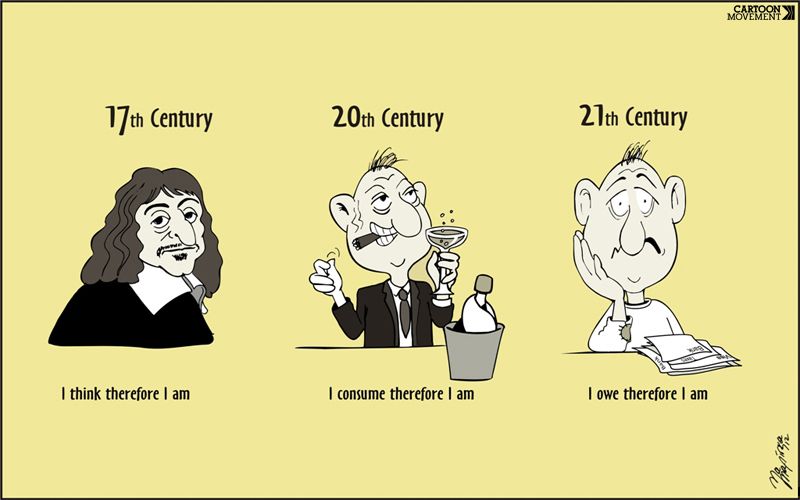
When I walked into the first day of “Virtue and Vice,” the philosophy class taught by President Michael Roth ’78, I wasn’t quite sure what to expect. I, as a first-year international student with limited exposure to American collegiate classroom and campus culture, thought I might encounter a tweed jacket-wearing, serious looking academic. After that first class, well, it’s safe to say that my expectations were turned upside down.
Roth is not your everyday college professor. When you walk into the Powell family cinema room where Roth teaches his class, you don’t encounter a middle-aged man holding an ancient book from which you just had to read a hundred pages. Instead, you see energetic and humor-filled Roth, holding onto his dear red cube (a microphone he throws around class) talking excitedly to students in the first row while philosophical music (he has a playlist for every writer we read) blares from the speakers.
Roth is known among Wesleyan students as a person with strong and unapologetic opinions about topics a lot of people find sensitive. His opinions on the writers he teaches, however, are top secret. As he said in his first class, “You wanna know my opinion? That’s something you’ll never know. Why? Because it doesn’t matter. Your opinion? Doesn’t matter as well. What was Aristotle’s opinion? Well, that matters.”
This approach to “give students an invitation to not worry about how much they like a text, but to really invest their time, energy and creativity into getting the most out of it,” as he described to me one day after class, is something that I find uncommon in the humanities. Other faculty, not in a necessarily better or worse way, tend to focus more on what students like best in a text or what they find important. Roth’s approach of taking the text as is, with all of its flaws and controversies and really grappling with it, are to me, the remnants of the love affairs he must have once had with all of them.
A typical week in “COL 228: Virtue and Vice” is the strangest academic process I have ever been a part of. I do the readings and think I’ve understood them. I go to class and realize that I understood nothing. Enlightenment philosophers like Rousseau and Montesquieu start feeling like peers. My interpretation of the text says one thing, Roth says another, a student who was unlucky enough to catch the red cube says something strangely wise, and the only thing I finally settle on is that I was wrong. We read Aristotle, who preaches about “the good life,” and we read Robespierre who says, “terror is virtue.” Only one thing is certain: you never know what to expect.
The literary and philosophical range that Roth covers is impressive. We chart out a roughly two thousand year course of modern western philosophy from Aristotle in ancient Greece to contemporary op-ed writers exploring queer theory. Roth views philosophy as a vehicle capable of inspiring change and refuses to shy away from the things about it we find unpalatable. He purposefully brings up controversial and even disturbing views, and makes his class think rationally and deeply about them. “Beautiful people have it better in life than ugly people,” he once posited. A class outrage followed this statement. Hands shot up. People who’d never spoken a word before delivered monologues. It’s easy to be angry at statements like these and at the person who made them, but it’s harder to accept and digest the element of truth, however harsh it may be, that they often carry. This, I think, is the thought process that Roth tries to teach.
It is also surprising that Roth dedicates a good chunk of his time to teaching when he’s not bound to. A very small percentage of university presidents are involved with their students directly, and even fewer teach actual classes. “I do it because I love it,” he said simply when I asked. “I’ve always taught even before I came to Wesleyan, and I’ll continue doing it. There’s only been one semester that I’ve not taught, and I have to say it, I felt like a fraud during that time. Like a salesman. Selling something that I’m not actually doing.”
“Virtue and Vice,” if I can honestly describe it, is an opportunity. An opportunity to be really influenced. The tremendous range of the class, the enormity of the thoughts of the writers we read, and the significance they carry for modern society are eye-opening. There is a good chance, if taken properly, that “Virtue and Vice” could be responsible for students finding the most important ideal or belief they ever come across. Roth’s deeply exuberant approach to what he teaches and his scholarly erudition when it comes to deciphering these texts are conduits through which philosophy can have an actual impact on students.
Suryansh Dalmia can be reached at sdalmia@wesleyan.edu.


Leave a Reply